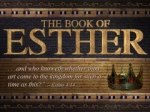 So far two of Job’s associates, Eliphaz and Bildad, have attempted to help Job understand what is happening to him. Eliphaz began by accusing Job according to human experience – utilizing his own flawed perspective to explain Job’s situation. Next Bildad came at Job from the position of human tradition – attempting to unravel this mystery from what has gone on in the past. Both failed to shed any light at all upon Job’s plight – instead making him more miserable in the process.
So far two of Job’s associates, Eliphaz and Bildad, have attempted to help Job understand what is happening to him. Eliphaz began by accusing Job according to human experience – utilizing his own flawed perspective to explain Job’s situation. Next Bildad came at Job from the position of human tradition – attempting to unravel this mystery from what has gone on in the past. Both failed to shed any light at all upon Job’s plight – instead making him more miserable in the process.
Finally, after the first two failed, Zophar the Naamathite felt it was time for him to step into the conversation and attempt to accomplish what the others had failed up to this point. All three friends were attempting to convince Job of his sinfulness and hypocrisy, and show him that he was reaping what he had sowed. Zophar began by accusing Job of sin (11:1-4); an proceeded by reasoning that he, in fact, was not reaping enough for all that he had done! (11:5-6). He went on to explain that man was helpless before God (11:7-12), and that if Job would only stop sinning and pray, he would be blessed. He reasoned that Job must be wicked because he was obviously suffering the judgments of the wicked (11:20). Through all of this, Zophar’s arguments were centered on the standpoint of human merit.
As before, Job speaks in his own defense – refusing the own sin in this matter and rejecting what Zophar accused him of. By now, Job is clearly frustrated with the poor counsel of these “friends” and even petitions to speak directly to God Almighty Himself (12:3). Job felt his friends were totally lacking in understanding what he was going through (or the “why” behind it). He could see by now that they possessed no sympathy for his feelings – nor could clearly see his heart. So far all they had accomplished was heaping false accusations upon him and making him feel worse. He refers to them as “physicians of no value” (12:4) and (as we have seen) they are actually provoking Job to say things he normally would not say.
For example, next (in chapter 13) Job launches into another tirade of wrong statements about God:
- You hide Your face from me (vs 24)
- You count me as an enemy
- You harass me like a leaf driven to and fro (vs 25)
- You pursue me as dry stubble
- You write bitter things against me
- You hold me accountable for the iniquities of my youth (vs 26)
- You put my feet in stocks (vs 27)
- You look critically upon all my paths
- You set a circle around the soles of my feet
- You cause me to waste away like a rotten thing or a moth-eaten garment (vs 28)
Three friends – three levels of accusation and condemnation – all spoken out of a limited revelation of God. Without the Word to guide them, nor the Holy Spirit to counsel them – Eliphaz, Bildad, and Zophar all use their own experience, tradition and merit to try to explain to Job what is happening to him. They spread the blame from God to Job – all the while never even hinting to who we know is the real culprit behind what is happening… Satan. Because of this – Job has digressed from a “righteous man” who did not “sin with his lips” into a man who speaks in bitterness, falsely accusing God of wrong over and over again.
One could hardly blame Job – with no Scripture to teach him, nor Spirit to guide him – coupled with an ungodly wife and “friends” such as these. It is almost as if he is powerless to prevent what is happening to him… and can only guess and stumble his way through circumstances. If only he had someone who could speak to God on his behalf… a Mediator who could stand up for him and present him clean before the Lord Almighty (Job 9:33).
As we continue reading – the three friends will stand up again and each try to explain to Job what is happening to him, who is responsible and why it is so. Take time to notice, not only the empty defense of the companions, as well as Job’s further accusations against God as the suffering continues – but the subtle foreshadowing of what Job is really lacking… a Mediator, a Redeemer, a Savior – as best described in the following verse:
“For I know that my Redeemer and Vindicator lives, and at last He [the Last One] will stand upon the earth. And after my skin, even this body, has been destroyed, then from my flesh or without it I shall see God, Whom I, even I, shall see for myself and on my side! And my eyes shall behold Him, and not as a stranger! My heart pines away and is consumed within me.” – Job 19:25-27
Be Fruitful & Multiply,
PK









